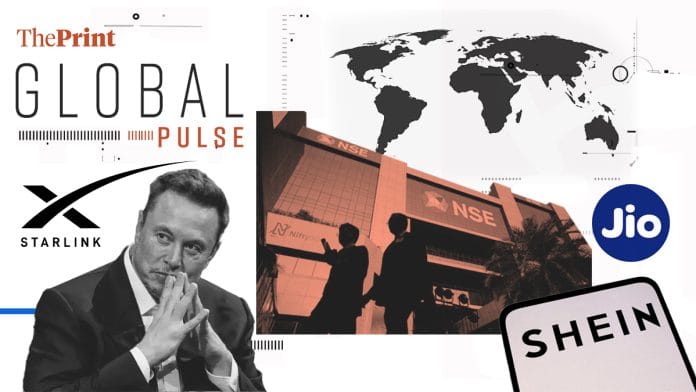New Delhi: India’s gearing up for a year of huge listings following the blockbuster performance of initial public offerings in 2024—even as the country is going through a slowdown.
At least seven companies are preparing to raise $1 billion each this year, reports the Financial Times. These include domestic names like Lenskart and Groww. South Korea’s LG is also expected to list its Indian arm.
Last year, India topped Asian IPO rankings and came in only below the US globally. Last year, there were three offerings above $1 billion, including Hyundai’s listing of its local business and the debut of Swiggy.
“The joker in the pack, which could also be the largest IPO, would be Reliance Jio, the telecommunications business owned by Mukesh Ambani—Asia’s richest man. While Ambani and his conglomerate Reliance Industries have yet to signal a timeline for Jio’s public offering, many investment bankers say it could happen in the second half of the year,” reports FT.
Both corporations and investors seem encouraged by a spate of strong debuts, and seem eager to take advantage of India’s heightened equity valuations—a unique development that’s driven by domestic flows, with households increasingly choosing to invest their savings in local markets.
Other companies are taking advantage of the Indian market too.
The BBC reports that Chinese fast fashion app, Shein, is relaunching in India five years after it was banned by Delhi. The relaunch is taking place under a deal with Reliance Retail, but the group is yet to make an official announcement. The app was banned along with dozens others—including TikTok—in 2020 due to data security concerns, following a spike in tensions after India and China clashed at the border. The app’s comeback is a rare exception in India, with more than 200 Chinese apps banned over the past 5 years.
“Shein’s re-entry to the Indian market comes with strict terms, which include saving all data within the country, India’s Commerce Minister Piyush Goyal said in December,” BBC reports.
The app was launched in India Friday night and was downloaded by over 10,000 people.
“The revival comes with strict conditions that give Reliance Retail full control over its operations and data while Shein will be a technological partner, Goyal told the Indian parliament in December,” BBC reports. “All customer and application data will be stored in India and Shein will not have any access rights, he said.”
It’s not just Chinese apps—the US is eyeing India too. Specifically, Elon Musk’s Starlink and Jeff Bezos’ Amazon.
“Across India, the world’s most populous country, about one-quarter of the nation’s landmass remains unconnected to the internet,” reports Bloomberg. “Neither terrestrial wireless phone networks nor traditional fiber internet has fully resolved the issue, leaving hundreds of millions of people offline. But as low-earth orbit (LEO) satellite networks proliferate, there’s a new chance for the government of Prime Minister Narendra Modi to solve that digital divide.”
Satellite companies are now hoping for a chance to compete in the Indian market when the country starts handing out licenses. But before that can happen, the Telecom Regulatory Authority of India (TRAI) has to publish its rules for the industry—like “how it will allocate the country’s bandwidth, how it plans to avoid interference with existing networks and how many years the licenses would last,” reports Bloomberg. These rules are expected to come early this year.
Starlink is eyeing the Indian market, hoping to add to its present user base of 4 million people in over 100 countries.
“Opening the market to Starlink could also serve a second purpose: getting on the good side of Musk, a close adviser to President Donald Trump,” reports Bloomberg. “Being in Musk’s good graces could offer New Delhi the opportunity to negotiate better terms with the US on issues related to trade and tariffs.”
Indian officials have reportedly sought more information from Starlink —like a business plan and data storage details.
TRAI will first have to decide whether “India will adopt for its nascent industry the standards set by the International Telecommunication Union, an agency of the United Nations, or choose to write its own rules”. Amazon, which wants its Project Kuiper to be eligible in India, warned against using ITU provisions.
“Meanwhile, local operators, such as Mittal’s cellular company Bharti Airtel, say new entrants are actually the ones likely to gain an unfair advantage as spectrum is doled out. Indian-based telecom incumbents worry that customers, especially high-paying ones, will shun them in favor of splashy international names like Starlink,” reports Bloomberg.






